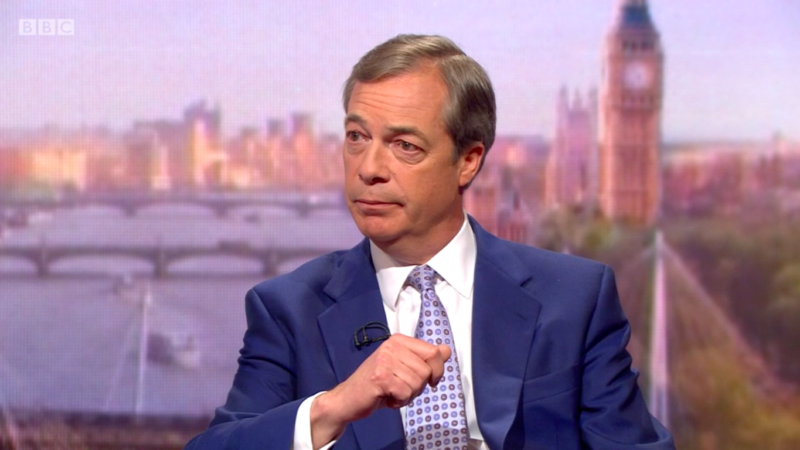
The European election results have handed a resounding victory to the Brexit Party and seen huge gains for the Liberal Democrats in second place, while the SNP is heading for a comfortable win in Scotland. With all of England declared, Labour has won 10 seats – down from 20 – and been pushed into third place, losing Remainers and Leavers to small parties with clear positions on Brexit. Labour came third in Wales, where Plaid Cymru did well. Labour has won just 14% of the vote, compared to BP on 31%, LD on 20%, Greens on 12%, the Tories on 9%. Nigel Farage is preparing for a general election, and the Lib Dems reckon coming first in London means they are back as a real threat in metropolitan areas as well as the rural South East. In sum, it’s the nightmare we expected as the Brexit extremes continue to thrive in our polarised political climate.
Just as in the local elections earlier this month, both main parties have been punished – no surprise considering they are presiding over the unresolved Brexit crisis in Westminster. Again, it’s ‘a plague on both your houses’, with a bit of extra plague for the Tories. The unmitigated disaster being experienced by the governing party – 9%! – has barely been mentioned, however, as it’s assumed that its electoral problem is being dealt with via a leadership election. That assumption is false: like Labour, it has lost voters on both ends of the Brexit spectrum, and whether Boris Johnson will exacerbate its problem of having lost the pro-EU professional middle classes is surely worthy of discussion.
But this is LabourList and we must focus on Labour. Predictably, the reaction of Labour MEP candidates and most members is that a strong Remain stance is necessary. Emily Thornberry trashed Labour’s position on BBC News as the first results were coming in, and Diane Abbott has said “something is wrong with our strategy”. John McDonnell has tweeted that Labour “must unite our party & country by taking issue back to people in a public vote”. There are rows over whether “public vote” is deliberately ambiguous, as it could refer to a referendum or general election, but Labour is moving towards a more explicitly anti-Brexit approach.
It’s natural that those London-based frontbenchers will feel the Lib Dem threat most keenly. Yet there is enduring opposition to the idea of another referendum from Labour MPs in Leave areas, where we also lost out, and from key figures such as Unite’s Len McCluskey. The leader’s office, certainly, is still divided on the issue. However, there are other reasons for Labour to move now. Although threats of a leadership challenge will come to nothing unless Corbynsceptics are willing and able to persuade an ex-Corbynite to stand, which is unlikely, increasing tensions within the left are worrying. Most importantly, anti-Brexit motions are on their way to conference, ready to torpedo Jeremy Corbyn’s current electoral strategy – could it be better to jump before being pushed?
Sorry to interrupt the “national” (London) narrative but there are a few differences here https://t.co/kbWwfRYpFB
— Lisa Nandy (@lisanandy) May 26, 2019
There are serious risks to a change in approach. For those looking at the latest poor results and thinking ‘what have we got to lose?’, the answer is a general election. That is what Labour’s compromise approach is designed for, not a low-turnout election acting as a proxy referendum that typically produces bad results for Labour. The answer is also: Labour’s traditional working class base in former manufacturing heartlands. That shift has been taking place for decades, and Brexit is only a symptom of deeper problems, but becoming a ‘Remain’ party will not address its causes.
The argument still standing is: ‘The country is divided roughly 50-50, so we may as well campaign for the side we believe in.’ But many on the left don’t believe in the pro-EU side, and even more don’t believe in ignoring the 2016 result. Doing so risks making Nigel Farage a permanent feature in British politics, and none of us want that. It’s also questionable whether another referendum is even achievable, considering the Commons has repeatedly voted down the idea (and Labour’s chief whip is a firm PV supporter, so it was not for want of trying). Its best chance? The new Prime Minister, intent on leaving the EU without a deal but finding that tricky, could opt for a referendum over an election. After all, ‘no deal’ is probably an easier sell than the Conservative Party.
Sign up to LabourList’s morning email for everything Labour, every weekday morning.



More from LabourList
Antonia Romeo appointed to lead civil service as new Cabinet Secretary
‘If Labour is serious about upskilling Britain, it must mobilise local businesses’
Stella Tsantekidou column: ‘What are we to make of the Labour Together scandal?’